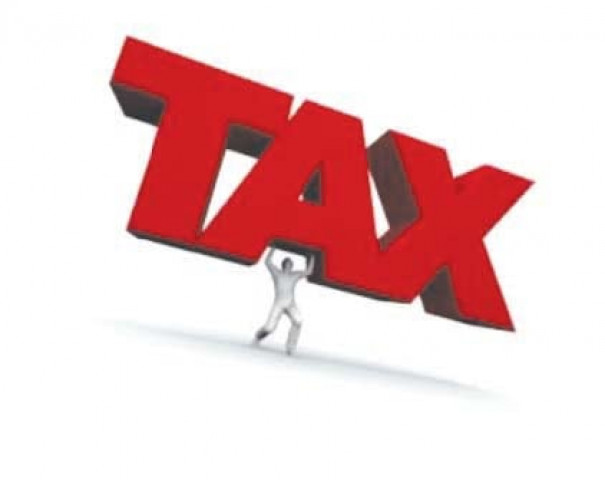Govt limits powers of taxmen
Decision comes after PM steps in to address concerns of people, businesses

After the hue and cry made by common people and businesspersons, the federal government on Monday decided to radically limit the proposed powers for arresting executives and also simplified the income tax on cash-on-delivery of goods at home.
The decisions were made after Prime Minister Shehbaz Sharif intervened over concerns expressed by people about giving powers of arresting businessmen to junior tax officers.
However, the National Assembly Standing Committee on Finance, where these decisions were disclosed, opposed the grant of authority to share taxpayer information with banks and to allow taxmen to enter business premises in income tax cases. PPP's Syed Naveed Qamar chaired the committee meeting.
The prime minister on Monday chaired a meeting and decided that safeguards would be introduced to limit the arresting powers of the Federal Board of Revenue (FBR), said Finance Minister Muhammad Aurangzeb in the standing committee meeting.
The government has proposed in the budget to give the FBR the authority to arrest people in tax fraud cases without arrest warrants from any magistrate. This set off alarm bells across the country.
Another NAB in the form of FBR could not be allowed, remarked MNA Sharmila Faruqui, who also criticised the permission to the FBR to share taxpayer information with commercial banks.
The authority to arrest people for tax fraud should only be given in cases where huge amounts were involved, PM Sharif said while chairing the meeting.
FBR Chairman Rashid Langrial said that new safeguards would be introduced to limit the use of such powers. He said that a person could only be arrested if he tried to escape from the country.
According to another safeguard, the person can be arrested for tampering with evidence or if he does not appear before the FBR despite the issuance of three notices. An executive could be arrested over tax fraud involving large amounts, likely to be set above Rs50 million, said the FBR chairman.
Langrial added that a special FBR board comprising three members would give permission for arresting an executive, instead of the current proposal to give powers to a junior officer.
While reviewing the budget, the standing committee objected to imposing taxes on cash-on-delivery of goods. The government has proposed 0.25% to 2% income tax on cash-on-delivery of goods.
There would be single and separate rates for payment in cash or in digital mode, said Bilal Azhar Kayani, Minister of State for Finance. He said that the tax rate on cash payment would be higher than the digital mode to compensate for revenues and discourage a cash economy.
FBR's Member Policy Najeeb Memon said that the government aimed to collect Rs59 billion from the tax on cash-on-delivery for goods.
Meanwhile, Standing Committee Chairman Syed Naveed Qamar urged the FBR to ask the International Monetary Fund (IMF) to continue the tax rebate for teachers and researchers in the next fiscal year too.
The FBR chairman had committed that 25% rebate would continue but the amendment said otherwise, said MNA Nafisa Shah. However, Langrial said that the IMF did not agree to the rebate beyond June 2025. He will again take up the issue with the IMF.
Langrial informed the standing committee that the income tax credit regime for non-profit organisations (NPOs) had been made stringent on the IMF's insistence. Unlike the current system, the NPOs will have to file income tax returns to claim tax credit and the FBR will have the authority to review business activities of these entities.
Langrial had to face a lot of criticism for corrupt practices in his organisation and in that backdrop for giving more powers under Section 175A related to banks and Section 175C related to business premises.
"Unfortunately, your department has a very bad reputation and it's not desirable to move onto a new territory," said Syed Naveed Qamar.
Langrial made a surprising statement by offering to leave his position after July 1, if he could not appoint at least 90% of people with clean reputation in key FBR offices.
"From July 1, 90% of FBR people working in key field offices won't be corrupt and if majority of those still remain corrupt, I will not do this job," he said.
The powers to allow FBR employees to sit in business offices in income tax matters were not aimed at enhancing revenue but to open avenues for corruption, said MNA Ali Sarfraz.
"The FBR is getting under the skin of the industry and its new powers will lead to harassment and open new mines of corruption," said MNA Nafisa Shah.





1733130350-0/Untitled-design-(76)1733130350-0-208x130.webp)













COMMENTS
Comments are moderated and generally will be posted if they are on-topic and not abusive.
For more information, please see our Comments FAQ